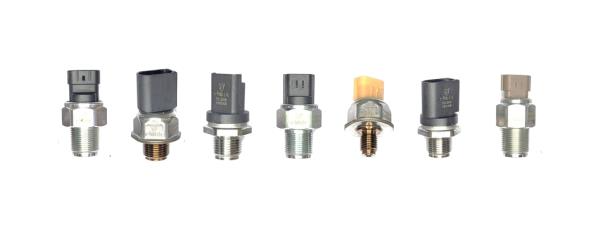Premium Quality
Manufactured to a High-Level Standard

What is the NOx Sensor ?
The NOx Sensor is an important component in a vehicle's exhaust system. NOx stands for Nitrogen Oxides, and the NOx Sensor measures the concentration of these oxides.
Exhaust Gas Detection: The NOx Sensor measures the concentration of nitrogen oxides in the exhaust gas in real-time, which is essential for complying with emission regulations.
Emission Control: The measured NOx levels are transmitted to the Engine Control Unit (ECU), which adjusts the exhaust gas after-treatment system (e.g., SCR system) accordingly. This helps reduce emissions and minimize environmental pollution.
Engine Performance Optimization: The data from the NOx Sensor is used to optimize the combustion process in the engine, which enhances fuel efficiency and improves engine performance.
Diagnostic Function: The vehicle's diagnostic system uses the NOx Sensor to detect emission-related issues and generate diagnostic trouble codes (DTCs), enabling accurate problem identification.
Premium Quality
Manufactured to a High-Level Standard

What is a Common Rail Pressure Sensor ?
The Common Rail Pressure Sensor is primarily used in diesel engine vehicles and plays a crucial role in the fuel system.
Fuel Pressure Measurement: It measures the pressure of the fuel rail in real-time within the common rail system, allowing precise control of fuel injection amount and timing.
Engine Performance Optimization: The data provided by the sensor is transmitted to the Engine Control Unit (ECU), which adjusts the fuel injection accordingly to maintain optimal combustion efficiency. This contributes to improved fuel efficiency and reduced emissions.
Safety Function: If the fuel pressure is abnormally high or low, the ECU detects it and takes protective measures, such as illuminating warning lights or taking steps to protect the engine. This plays a significant role in enhancing the safety and reliability of the vehicle.
Diagnostic Function: The vehicle's diagnostic system can detect anomalies in the fuel system through diagnostic trouble codes (DTCs), enabling accurate problem identification during maintenance.



